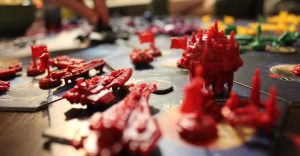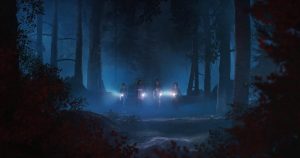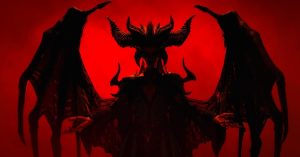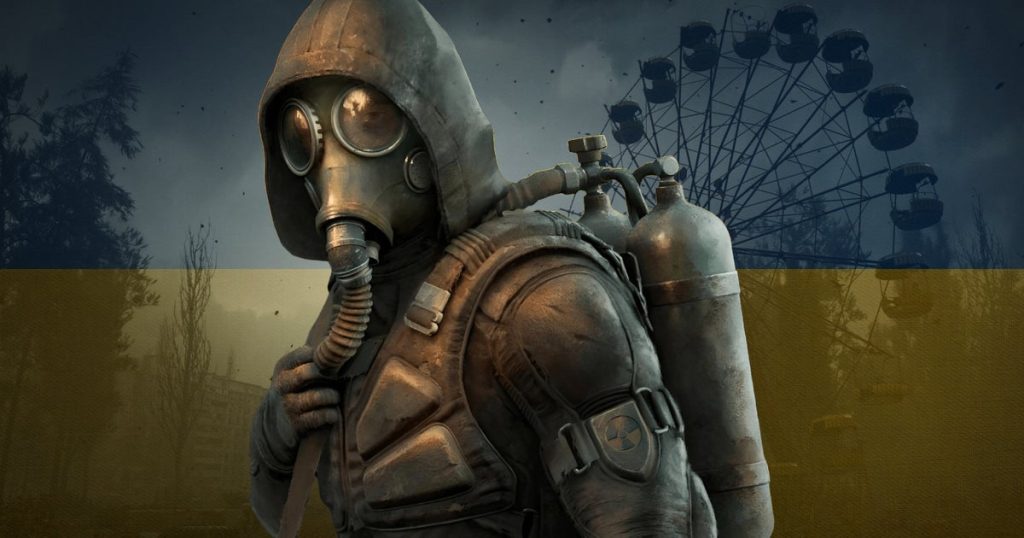
The Russia-Ukraine war rages on, and there is no team more impacted by this reality than Stalker 2 creators GSC World. At the outbreak of the war, the team was split in two, with half evacuating the country and the others staying behind. The company fell victim to cyber attacks following its decision not to release Stalker 2 in Russia. It even suffered a server fire that wiped out an entire floor of its new Prague office.
It goes without saying that creating a game under these conditions exerts an extraordinary amount of pressure. Given all that has happened, and with the war still on-going, questions about how the team has managed to pull through were at the top of my list when visiting the studio earlier this month. GSC’s answer to all of them, impressively, was to come at development with a people-first approach. The consequence? A Ukrainian developer giving the world a project it’s proud of, a creation dripping with national pride – at a time when it’s dearly needed.
My window into GSC World’s past few years of turmoil was Slava Lukyanenka, lead producer on Stalker 2 and one of the many staff that decided to leave the country at the start of the war. Our short chat on the unique environment surrounding Stalker 2’s development – as well as how the war in Ukraine impacted the game and its developer – can be found below.
VG247: When the first Stalker came out, it was created with the context of the Chernobyl incident and the fallout of that. Given recent events, with the on-going war in Ukraine, there’s a whole new context to creating Stalker 2. How has that affected the design process here?
Lukyanenka: There is no direct impact, so we haven’t made the game a propaganda thing. We didn’t want to be very straightforward. At the same time with the whole team travelling – half of us are in Kiev, half in Prussia, some are scattered around Europe – we still need to keep delivering. We can’t not reflect it in the game. But we do it indirectly. We do it through the stories, through the environment, through the feeling of decay.
Obviously, apart from the struggle, we’re trying to embrace parts of Ukrainian culture. Across the zone, you’ll see something we couldn’t do in the original because we didn’t have the tech; you can see old bus stations with pretty mosaic pictures which have been there for generations. Those are part of Ukraine culture. There are characters that can show you symbols that are important to Ukrainians.
Apart from that, there are places where you can feel safe. There, you can find radios that are playing Ukrainian music. We have signed many cool bands that make you feel like you’re in Ukraine – that should help players feel that they’re not in a general Soviet country, but [specifically] Ukraine.
VG247: Why was it so important to the team to embrace Ukrainian culture in this way, given the obvious real world context?
Lukyanenka: That’s exactly why it’s important. For many Western people, it’s hard to distinguish Stalker from other post-Soviet places, as there are other games that use a similar setting. The devil is in the details. As all of our artists come from Ukraine as well as most of the wider team, when you can take something from your memories of your childhood and put it in the game, just so people can see how things looked like when you were a kid, it’s something that can be interesting and different from other games out there.
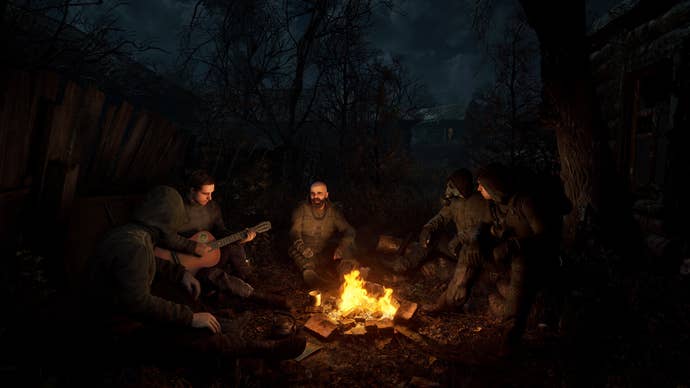
VG247: You’ve all been under extraordinary pressure over the past few years, and with that the development of this game has been extraordinary, too. Can you talk about what it’s been like all this time? And how is the team feeling now the game is almost out?
Lukyanenka: I think the greatest part of our studio is that difficulty makes us stronger. When the studio moved to another country that was a huge challenge, and led to a big rethink for everyone on how we had to work and how we’d deliver. When we had the fire in the studio, it didn’t just slow us down, it led us to rethink once again on how we organise our work and talk to each other. I would say we could do it only because people inside of the studio were taking care of eachother. Secondly, they were taking care of the product. It might sound like they didn’t care about the game, but rather themselves, but in reality without developers and our team we couldn’t deliver this game. That’s why taking care of each other and putting people first allowed us to keep working.
VG247: Given how the team has been personally affected by the war, can you talk about the stress that’s followed you over the past few years? What’s it been like?
Lukyanenka: It’s hard to answer, because when you ask the question I started reflecting immediately [chuckles]
VG247: What are you reflecting on?
Lukyanenka: What has happened, how they’ve changed the course of our work and how we interact with each other. I’ll give you a story. Imagine you’re starting fresh, trying to deliver on one part of the gameplay, but the other day another rocket hits Odessa. Someone dies there – not someone from the studio, but someone close to someone in the studio. In a couple of weeks it leads to one of my developer’s decision to join the army. On one hand as a professional, that’s a really bad idea and I need to talk him out of it. But he’s determined, he knows it’s the right thing to do, I know it’s the right thing to do, so there’s nothing else to do than to figure out another way to continue with development.
These things happen pretty often. Yes it’s stressful. At some point in time you get used to it, but not in a way that you’re getting cold about it, but in a way where you have people around you to rely on and pull through together.
The greatest part of our studio is that difficulty makes us stronger
VG247: Do you feel safe now? Not comfortable, but more acclimated to the situation?
Lukyanenka: I’d say we got used to it. I wouldn’t say I feel normal. The circumstance you keep in mind, and it brings an additional level of anxiety, but like I said when you’re not alone in this it’s a lot easier. Online, there are many friends of ours from Ukrainian game development who are constantly supporting us, and when we face challenges they’re there for us.
VG247: Final question; with the game almost out, how does it feel to have nearly reached the finish line?
Lukyanenka: Anxious! When you do show it to someone else, you’re always digging and digging, thinking this is total s**t. But you show it to people and they’re like, this is awesome! Okay, perhaps we’ve actually done something here. I’d say the closer we get to the release the more anxious I get, the more anxiety I have. yet, at the same time, finally showing it to people after years of development is essential for us to pull it off.
If you’re curious about our thoughts on Stalker 2, you can read our preview of the game here. Stalker 2 is set to release on November 20 on Xbox Series X, Series S, and PC.








